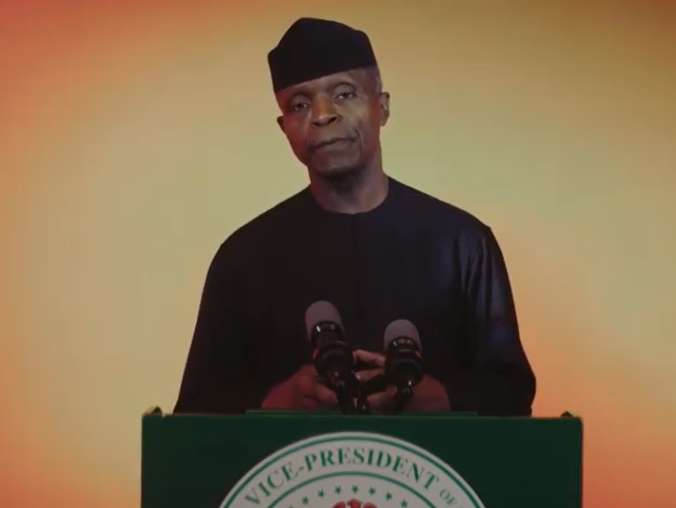Nigeria will need to spend over 410 billion dollars to deliver its energy transition plan by 2060.
Vice President Yemi Osinbajo stated this at the global virtual inauguration of Nigeria’s Energy Transition Plan on Wednesday.
Media aide to the vice president, Laolu Akande, made this known in a statement.
According to the statement, the plan is a roadmap to tackle the dual crises of energy poverty and climate change and Osinbajo highlighted the significant scale of resources required to attain both development and climate ambitions.
He said that Africa’s increasing energy gaps required collaboration to take ownership of the continent’s transition pathways and the action should be decisive and urgent.
“For Africa, the problem of energy poverty is as important as our climate ambitions.
“Energy use is crucial for almost every conceivable aspect of development; wealth, health, nutrition, water, infrastructure, education, and life expectancy are significantly related to the consumption of energy per capita.
“ Nigeria would need to spend 410 billion dollars above business-as-usual spending to deliver our transition plan by 2060, which translates to about 10 billion dollars per year.
“The average 3billion dollars per year investments in renewable energy recorded for the whole of Africa between 2000 and 2020 will certainly not suffice,” he added.
On other aspirations of the roadmap, Osinbajo explained that the plan had the potential to create about 340,000 jobs by 2030, and 840,000 by 2060.
He said it also presented a unique opportunity to deliver a true low-carbon and rapid development model in Africa’s largest economy.
At the virtual event, Mr Shubham Chaudhuri, Nigeria Country Director for World Bank said the bank planned to commit over 1.5 billion dollars towards the Energy Transition Plan on renewable energy, power sector reforms, clean cooking, and wherever opportunities arose.
On his part, Mr Adam Cortese, Chief Executive Officer, Sun Africa stated that the inauguration of Nigeria’s Energy Transition Plan had further accelerated efforts, proving Nigeria to be fertile grounds for investments in the sector.









